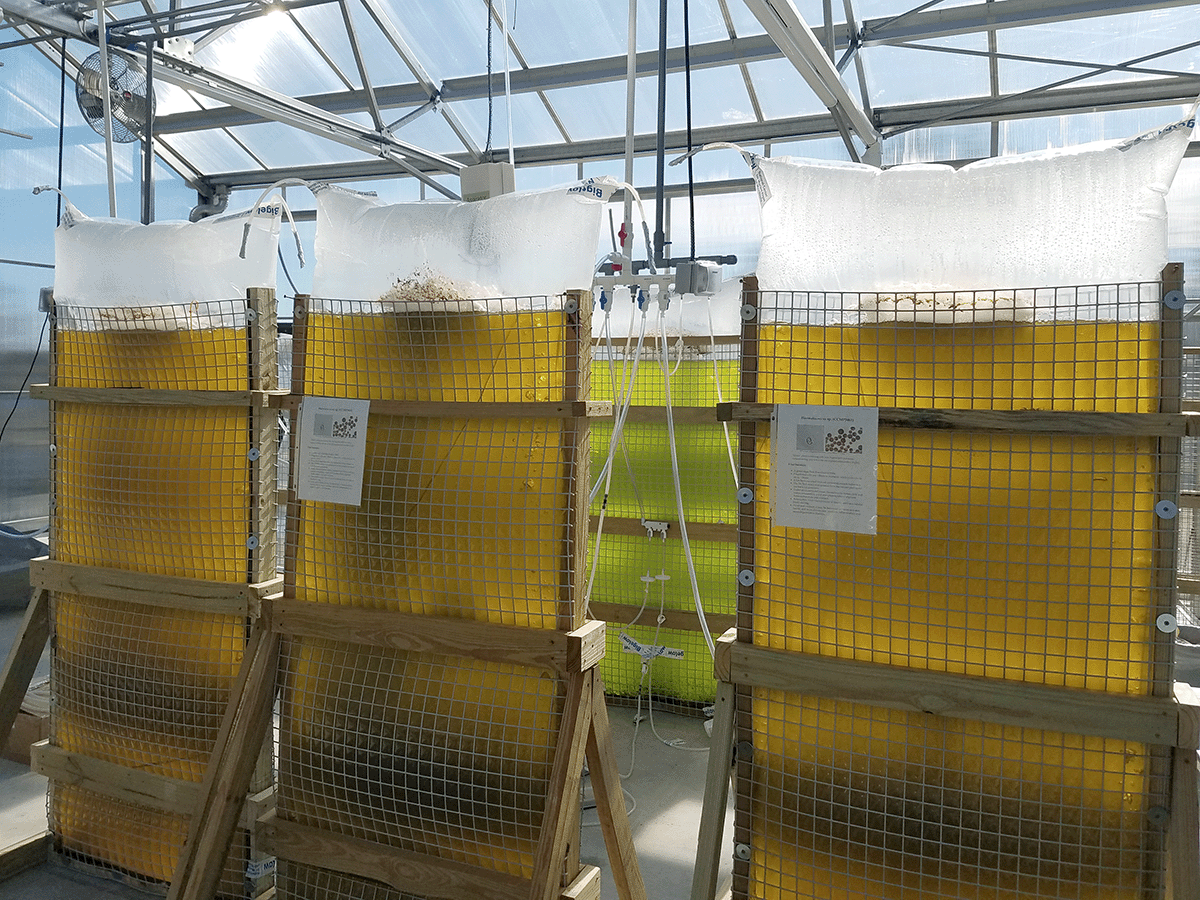New $7 Million Grant to Power Algae-Based Innovation
Bigelow Laboratory has secured a $7 million award from the National Science Foundation to build the Maine Algal Research Infrastructure and Accelerator with a team of partners from across Maine. MARIA will strengthen research infrastructure — with state-of-the-art equipment, education programs, and networking opportunities — to serve as a nucleus of innovation potential for algae-based solutions in the agriculture, aquaculture, energy, and pharmaceutical sectors.
Facilitating partnerships between research institutes, universities, and business development entities, the accelerator will streamline the process of exploring and harnessing algae’s potential to help drive economic growth and workforce development for Maine’s emerging blue economy.
“The algae strains housed at Bigelow Laboratory’s National Center for Marine Algae and Microbiota constitute an incredibly promising resource — if we have the infrastructure in place to harness that wealth of opportunity,” said Senior Research Scientist Mike Lomas, the principal investigator on the project and director of NCMA. “MARIA will not only enable us to build this infrastructure; it will help us facilitate the partnerships and develop the workforce necessary to maintain that infrastructure and showcase the full potential of algae.”
Algae are found in a growing range of consumer products from food to personal care items, and researchers are just beginning to understand their full biological, chemical, and genetic potential for sustainable commercial applications. Yet, despite recent growth and burgeoning interest in the blue economy, transforming algae into commercially viable products still comes with a host of challenges.
A fundamental roadblock is a lack of connections between research, business development, and education. MARIA will tackle this challenge — while significantly advancing scientific knowledge in algae and developing new economic opportunities for Maine.
The accelerator will facilitate a collaborative, interdisciplinary network of experts, stakeholders, and end-users to help develop and promote algae products, leveraging the resources of project partners like the Maine Center for Entrepreneurs, Gulf of Maine Ventures, Maine Technology Institute, MDI Biological Laboratory, and Kansas State University. It also includes comprehensive training programs to equip Maine students at all stages with the entrepreneurial and technical skills to support algae-based ventures, enhancing existing programming offered through University of New England, Colby College, and Southern Maine Community College.
The new research infrastructure will also include instruments and staff to enable researchers to accelerate the study of individual microalgal strains, leading to novel discoveries that will underpin new, wide-ranging and high-value products from algae. MARIA will streamline the exploration of algae’s commercial potential from early research through product optimization and scaling, directly addressing specific goals within the Maine Innovation Economy Action Plan. It also includes funding to advance related early-stage research into algae-based solutions, which Bigelow Laboratory and its partners have long pioneered.
“MARIA will enable us to discover novel approaches to harness algae as efficient biofactories for synthesizing valuable compounds from soil amendments to biodegradable polymers and pharmaceuticals,” said Senior Research Scientist Manoj Kamalanathan, co-principal investigator on the project. “In the near future, I think there will be algae or algae-derived constituents in most of the products that we interact with on a daily basis.”
Merging diverse expertise, building cutting-edge research infrastructure, and linking different data sources in this way is essential to stimulate algal innovation and promote new educational and economic opportunities within the state.
“We’ve long recognized that an algae-based project to support the blue economy was an important pathway through which Bigelow Laboratory and our partners could support Maine’s Innovation Economy Action Plan,” said Vice President for Research Beth Orcutt. “The products and discoveries catalyzed by MARIA will seamlessly integrate with existing industries in Maine and facilitate new opportunities in line with the action plan, providing broad benefits to the whole state.”
The Maine Algal Research Infrastructure and Accelerator project is funded by the NSF EPSCoR Research Incubators for STEM Excellence RII program.

